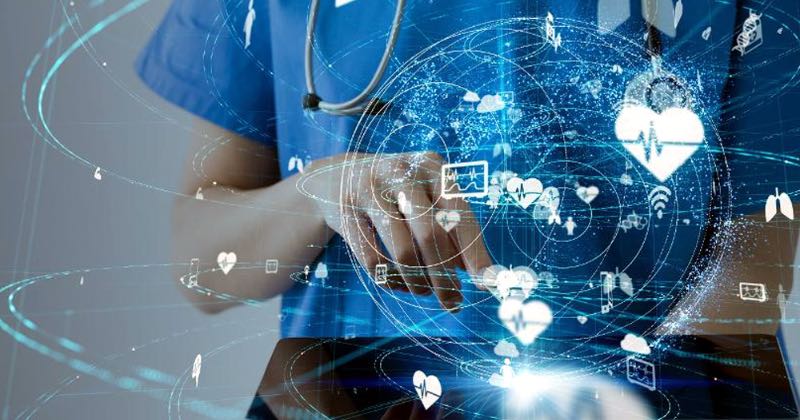Artificial Intelligence in Healthcare: Transforming Medicine
Artificial Intelligence (AI) has emerged as one of the most influential technologies in the modern world, especially within the healthcare sector. The integration of AI into healthcare is revolutionizing the way medical professionals diagnose diseases, manage treatments, and deliver patient care. In this article, we will explore the transformative power of AI in healthcare, examine its benefits, address its challenges, and discuss future possibilities.
What is Artificial Intelligence in Healthcare?
Artificial Intelligence refers to the ability of computer systems to perform tasks that usually require human intelligence. In healthcare, AI systems utilize algorithms and vast datasets to recognize patterns, make predictions, and assist in clinical decision-making. Technologies such as machine learning, natural language processing (NLP), and deep learning are all part of the AI family, each offering unique capabilities for the medical field.
Key Applications of AI in Healthcare
- Medical Imaging and Diagnostics: AI-powered tools can analyze X-rays, MRIs, and CT scans with remarkable accuracy, often detecting diseases such as cancer earlier than traditional methods.
- Drug Discovery and Development: Machine learning models accelerate the identification of potential drug candidates, reducing the time and cost required for research and development.
- Personalized Treatment: AI can tailor treatment plans to individual patients, factoring in genetics, lifestyle, and medical history for optimized outcomes.
- Predictive Analytics: By analyzing patient data, AI can identify individuals at risk for certain conditions, enabling preventive interventions.
- Virtual Health Assistants: Chatbots and AI-driven platforms provide patients with instant medical information, appointment scheduling, and symptom checks.
- Administrative Automation: AI streamlines routine tasks such as billing, scheduling, and maintaining electronic health records (EHRs).
Benefits of AI in Healthcare
The adoption of AI in healthcare brings a multitude of benefits:
- Improved Accuracy: AI algorithms can process enormous amounts of data to deliver more accurate diagnoses and treatment recommendations.
- Faster Decision-Making: With real-time data analysis, clinicians can make quicker decisions, improving patient outcomes.
- Cost Reduction: Automating administrative and clinical processes reduces operational costs and minimizes human error.
- Enhanced Patient Experience: Personalized care and virtual assistance improve patient engagement and satisfaction.
- Expanding Access: AI tools enable remote consultations and telemedicine, bringing healthcare to underserved populations.
Challenges Facing AI in Healthcare
Despite its promise, the integration of AI in healthcare is not without challenges:
- Data Privacy and Security: Protecting sensitive health data from breaches and misuse is a top concern.
- Bias and Fairness: AI systems can inherit biases present in training data, leading to unequal treatment outcomes.
- Regulatory Hurdles: Gaining approval for AI-driven devices and software requires rigorous testing and compliance with regulatory bodies.
- Integration with Existing Systems: Adapting legacy healthcare infrastructure to work with AI technologies can be complex and costly.
- Ethical Considerations: Decisions made by AI systems must be transparent and accountable, especially when patient lives are at stake.
Real-World Examples of AI in Healthcare
Many hospitals and clinics around the world are already benefiting from AI technologies:
- IBM Watson Health: Utilizes AI to assist in oncology and genomics, helping doctors develop personalized cancer treatment plans.
- Google DeepMind: Has developed AI algorithms that can diagnose eye diseases as accurately as human experts.
- Babylon Health: Offers an AI-powered virtual health assistant for medical consultations and triage.
- PathAI: Uses machine learning to improve the accuracy of pathology diagnoses.
The Future of Artificial Intelligence in Healthcare
As AI technology continues to advance, its role in healthcare will only grow. Future developments may include fully automated diagnostic systems, robotic surgeries guided by AI, and even more personalized medicine based on real-time health monitoring. The integration of AI with wearable devices and the Internet of Things (IoT) will create a connected ecosystem where data-driven insights can be delivered instantly to both patients and healthcare providers.
However, for AI in healthcare to reach its full potential, ongoing collaboration between medical professionals, technologists, and policymakers is essential. Establishing ethical guidelines, improving data quality, and investing in training for healthcare workers will help ensure that AI improves health outcomes for everyone.
Conclusion
Artificial Intelligence is fundamentally transforming the healthcare industry. By improving diagnostic accuracy, speeding up drug discovery, personalizing treatments, and streamlining administrative tasks, AI holds the promise of a healthier, more efficient future. While challenges remain, the ongoing integration of AI into healthcare will continue to unlock new possibilities and improve lives around the globe.
Whether you are a healthcare professional, patient, or technology enthusiast, understanding the impact of AI on healthcare is essential for navigating the future of medicine.



